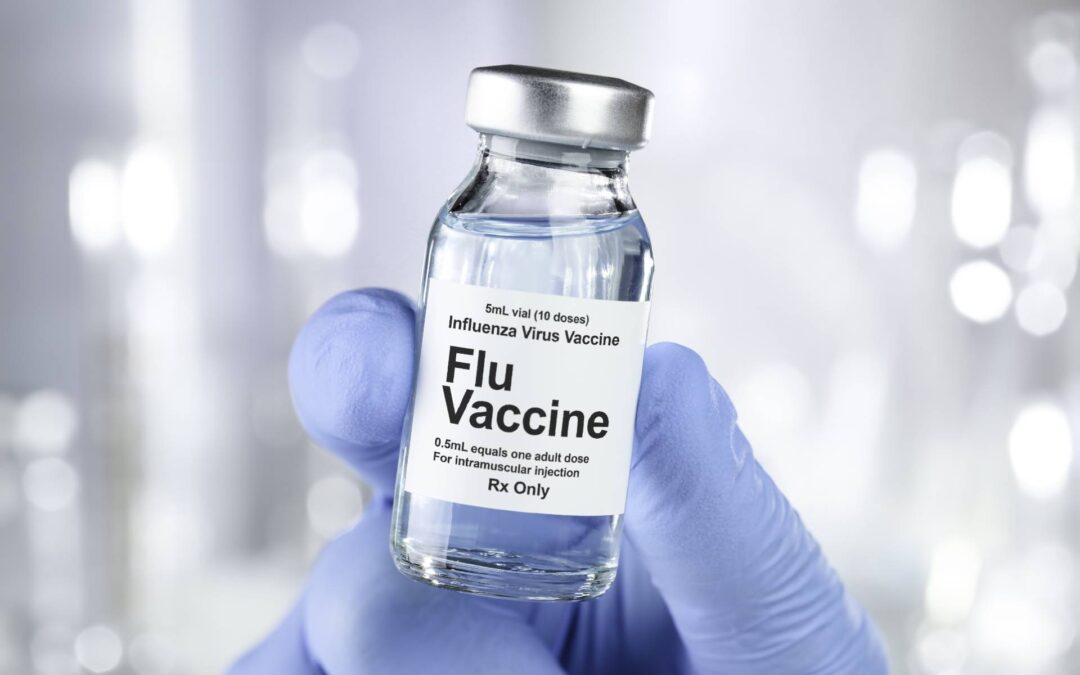Real talk: the closer to the onset of flu season, you can get the flu shot, the better. But what happens when there is short supply, life gets busy, or you simply forget? Is it ever too late to get vaccinated for the flu? Innova Primary Care is in the business of health and wellness for all of our patients and the city of Huntsville, AL. We want to see you stay well this year and beyond. Flu vaccinations are crucial for prevention. While you may still develop the flu even if you get the flu shot, studies show that vaccines lessen the severity of the flu if you catch it.
Once you’ve burned dinner rolls, nobody wants them. If you hit snooze too many times, you will be late for work. You will not be able to recuperate the time you lost in bed. After your precious pup grows out of puppydom and into a lovable old guy, the puppy stage is over. Once the milk is spoiled, you cannot drink it (gross). And once you bake a cake, you cannot extract the eggs you used to get you to a finished product.
The truth is, lots of things have a time limit.
Once it’s over, there is no turning back. While this line of thinking is correct for some things, it is not accurate for the flu shot. Winter flu season generally hits hardest between October to February. However, there are years when it begins earlier than October, lasts later than February, or both. Harvard Health states that there are years where the flu epidemic can start as early as September and last well into or after May. Because of this, you cannot go wrong getting a flu shot well into the assumed season. Protection, even if it is later in the season, still matters.
How is the flu vaccine chosen?
The flu vaccine guards you against three or four potential influenza strains that researchers believe to be the most contagious. This means that the vaccine changes from year to year based on research and best guesses from those who know how to make such decisions. Each year the flu is monitored. Analysis from over 100 national influenza centers is used to create a vaccine for the upcoming year.
Because the vaccine changes from year to year, you need to get a new vaccine at the onset of each influenza season. Immunity from one year to the next does not carry over, and estimates suggest that those who get the vaccine have protection for about six months. This is why it is vital that you do not get the vaccine too early. While the vaccine may become available in July or August, it is best to wait until October so that you will have protection for the duration of the flu season.
How does the flu vaccine work?
When you get the flu vaccine, your body creates antibodies. In simplistic terms, antibodies are proteins that bind themselves to bacteria and viruses and destroy them. Think of antibodies as your body’s own army. When a foreign invader comes in, your antibodies set out to hunt them down and kill them. Antibodies find specific invaders and knock them out of commission.
The antibodies that develop as a response to the flu vaccine help your body fight the specific influenza strains. Again, the flu vaccine changes from year to year based on research and what scientists believe will be the most common influenza variants for the upcoming flu season. Once you receive the vaccine, it takes about two weeks for the vaccine to become fully effective. For this reason, getting the vaccine early in the flu season is best because safeguards will be in place once the season is in full effect.
If you miss it, why even bother?
Yes! Remember, flu season is typically between October and February. However, it can last until May. For this reason alone, get the flu shot when you can. It will not hurt you, but it can certainly help in the event of exposure. Why not give yourself as much protection as you can with the time available to you.
We should note that the flu vaccination protects you against developing a respiratory illness resulting from a flu strain. If you get a cold or experience the dreaded stomach flu, remember that this is not a case of the vaccine not working for you. The stomach flu and colds or seasonal allergies are not a part of the flu vaccine. They are different beasts entirely, and developing one or the other is not indicative of the flu vaccine’s efficacy.
Myths about the flu shot
Does the flu shot make you ill with the flu? Nope. While this myth has been in circulation for quite some time, the truth is the flu shot does not make you sick with the flu. However, the flu vaccine may cause side effects for some. The side effects may include injection site soreness, headache, muscle aches, fever, or nausea. It is essential to know the difference between potential side effects and the flu itself. Talk to your health care provider with any concerns you may have and include them in your decision on whether to vaccinate or not.
Severe allergic reactions to the flu shot are rare, but they are possible. Severe reactions include hives, weakness, rapid heart rate, dizziness, swelling at lips or eyes, wheezing, or difficulty breathing. Again, speak to your health care provider regarding possible side effects. Be sure to do so if you have any known allergies to eggs or other ingredients in the vaccine. Knowledge is power.

CDC Recommendations
The CDC recommends the flu shot to anyone over the age of 6 months with no known life-threatening allergies to the vaccine and certain medical conditions. Why? Because the risk of severe medical complications that may arise from the flu vaccination far outweigh the flu shot itself. Be sure to consult with your physician about any concerns you may have.
We hope that this post encourages you that it is not too late to take charge of your health and go for the flu vaccination even now. While the flu vaccination does not guarantee that you will not develop the flu, it is the best chance you have against it. If you have any questions or need to get your vaccination, please call Innova Primary Care today!




 About
About About
About

 About
About About
About About
About About
About About
About













